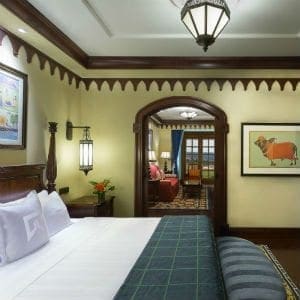 For over the 15 years that I have been within this industry, independent hotels here in Europe have been always dependent on agencies – initially offline, which then became online. From the early days when GTA (Gulliver Travel Associates) were all-dominant, to now where booking.com has to some extent replaced GTA, hotels have allowed external agencies to take over their inventory.
For over the 15 years that I have been within this industry, independent hotels here in Europe have been always dependent on agencies – initially offline, which then became online. From the early days when GTA (Gulliver Travel Associates) were all-dominant, to now where booking.com has to some extent replaced GTA, hotels have allowed external agencies to take over their inventory.
Now we are entering a new phase, where it has been clear for some time that booking.com and Expedia have been implementing two very different strategies to maintain growth and market share. Expedia has been expanding by acquisition, with its latest buys of Orbitz, Travelocity and Home & Away, while Booking.com has been diversifying with its purchases of Buuteeq. They make these moves due in part to the competition on the horizon from Google and Airbnb. The recently announced deal that saw booking.com providing global inventory to Tripadvisor Instant Booking effectively makes them now an OTA.
Over the last few years, TripAdvisor has been worked extremely hard in cultivating a positive relationship with hoteliers, while reviews, (thanks to TripAdvisor) have become an ever more important part for hotel directors to focus on to ensure excellent guest comments get published. Some hotels have even gone as far as directing their hard-won traffic from their website to their page on TripAdvisor (which also sells their competitors). Behind many reception desks, there are now certificates and plaques of excellence from booking.com and TripAdvisor occupying pride of place. However great these actions are, hoteliers are feeding and promoting the very agencies online that send them business with a 15-20% commission bill.
We have also seen OTAs (including TripAdvisor) investing heavily in user experience, making it easier for guests to book a hotel from either a desktop or mobile device. They are introducing features such as confirmations sent straight to guests’ phones and personalized marketing which provides with useful suggestions based on searches. Due to their size and power, OTAs have the resources to take advantage of the huge amount of data available to ensure a great user experience. Indeed many hoteliers would be the first to use booking.com for their business travel as all their personal information is stored there.
Booking engines for the independent hotelier are also sometimes too focused on revenue management techniques rather than user experience. Book your hotel on booking.com, then on your site – how does it match up? You may need to start looking at some of the great products out there with booking engines focused on providing a unique user experience but also incorporating data capture at its heart.
So why are hotels sleepwalking into increased OTA dependency?
The answer is simple – laziness. With the changes within our industry I have mentioned, it is most likely that there will be an increase in competition within the OTA distribution space. TripAdvisor becoming an OTA is a big game changer, especially as they are in the top three of most visited travel sites. Google, still the number one search tool and with its total dominance on smartphones, could become a valuable player. These changes, if left unsupervised, will allow OTAs to eat into even more of your inventory, especially if you are openly promoting them from your own website.
Hotels can be smart at collecting guest data via inexpensive methods such as social Wi-Fi. Booking engines and websites can be improved to provide a better user experience. You can interact with your guests using Whatsapp or Facebook Messenger to provide that special attention to detail. And all the above can be done cost effectively and implemented seamlessly, so you can focus on providing your guests a unique experience while starting the process of slowly decreasing your OTA dependency.
Currently in Europe, almost three quarters (74%) of independent hotel reservations comes from an OTA (Source: Phocuswright). Now just imagine if we got that figure down to around 10% by being smarter with how you connect to your guests and users on your website. Marketing online is not just about PPC campaigns; it requires a more holistic approach which takes advantage of the very latest technology to improve your hotel in three ways: data collection, online user experience and guest communication.
OTAs are a fundamental part of your online distribution, but they should not be your only focus. Make 2016 the year your hotel started reversing the trend of increasing dependency on OTAs and start building a solid platform to increase your direct online reservations.
 John Kearney is Director of Hotelient as well as Hotel Sales & Consultancy Specialist with over 15 years of experience in managing hotels. Hotelient provides guest marketing solutions to hotels across Europe. Need help in planning the right online marketing strategy for 2016? Talk to us, email info@hotelient.net for further information.
John Kearney is Director of Hotelient as well as Hotel Sales & Consultancy Specialist with over 15 years of experience in managing hotels. Hotelient provides guest marketing solutions to hotels across Europe. Need help in planning the right online marketing strategy for 2016? Talk to us, email info@hotelient.net for further information.















